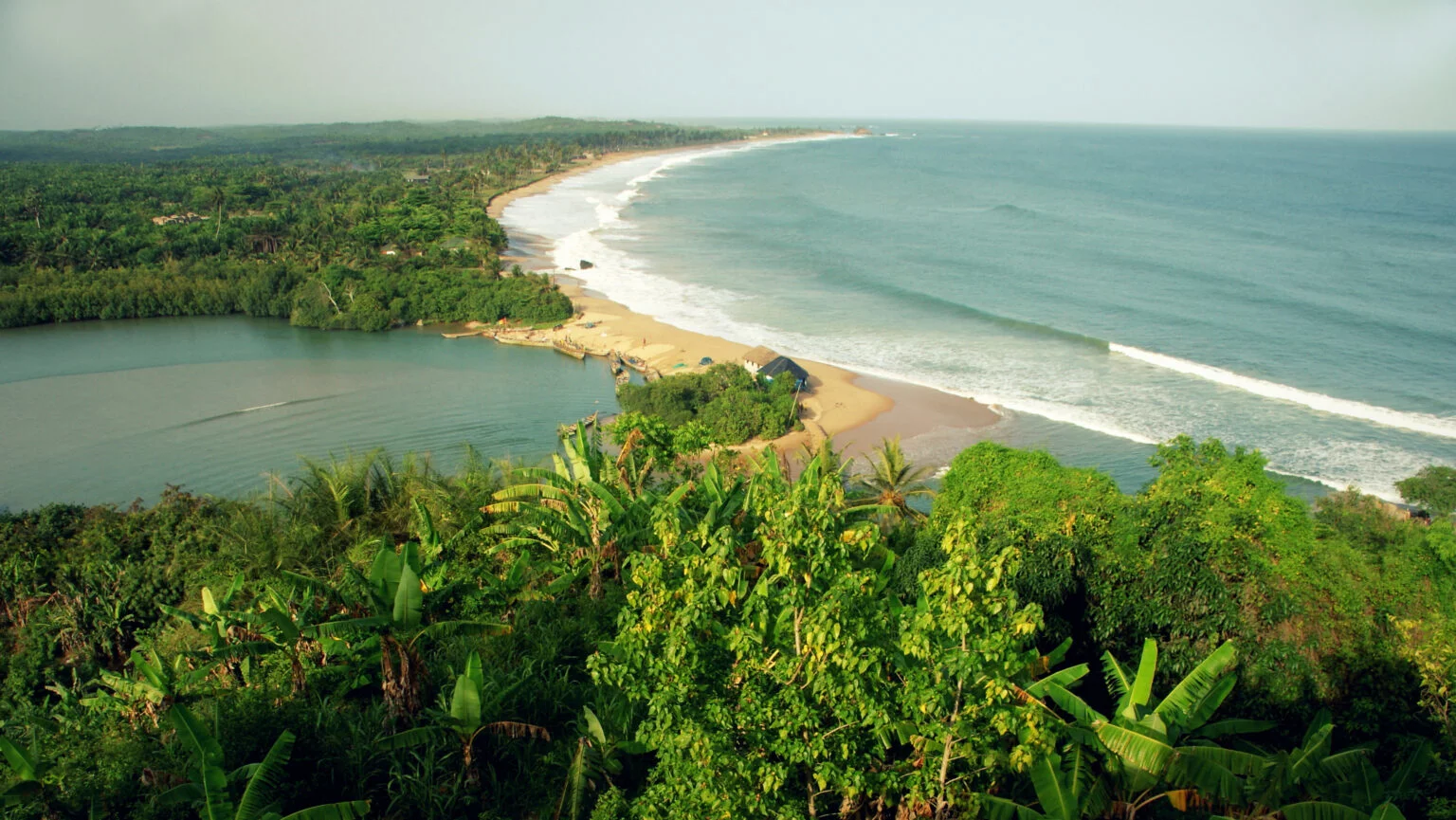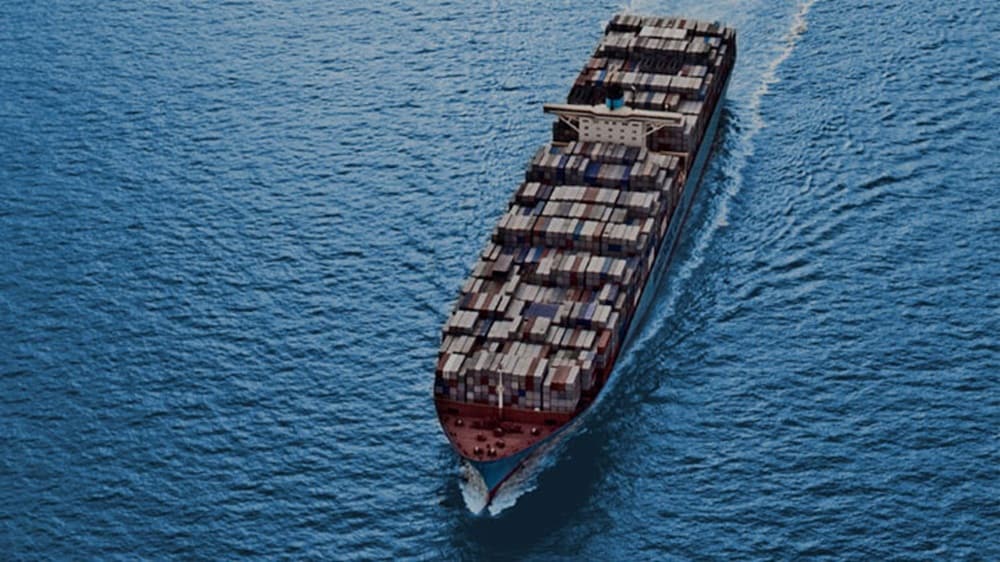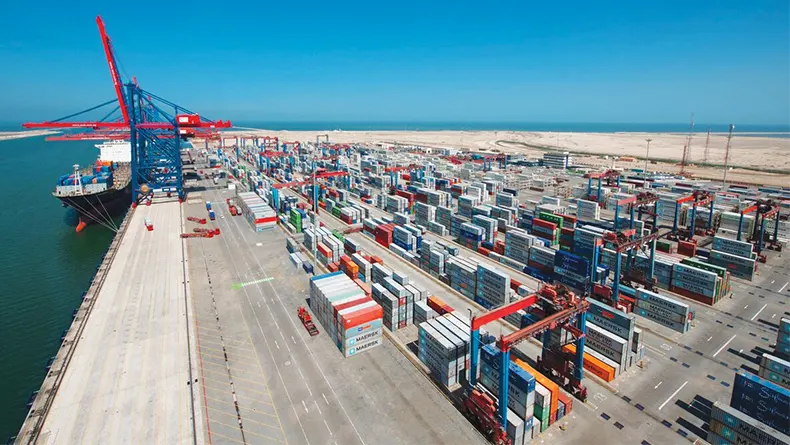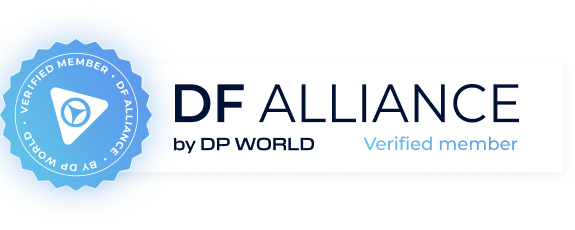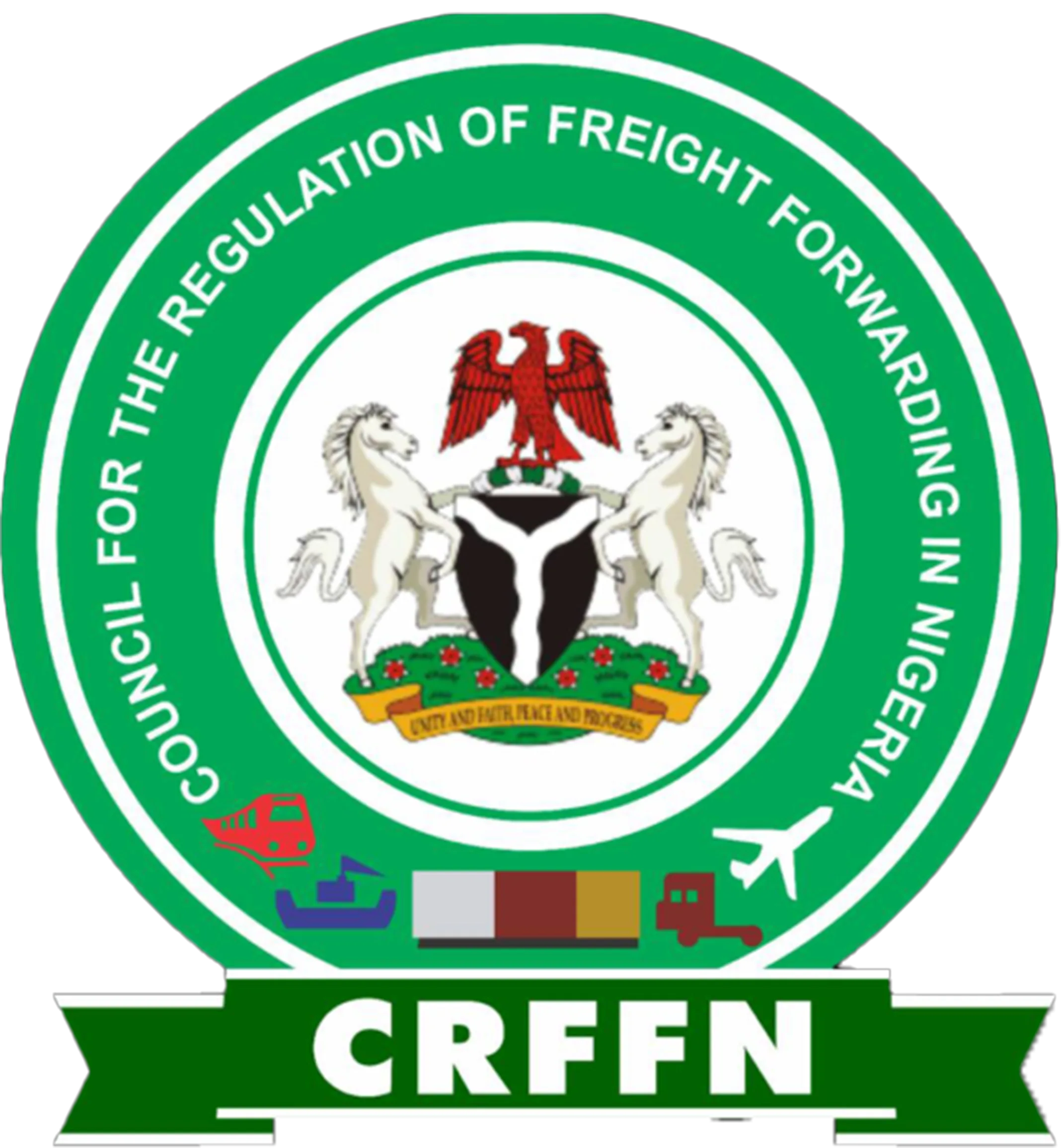Connecting Sierra Leona across Africa and beyond
We have been connecting Sierra Leonean businesses across Africa and beyond for many years.
Limark has been a trusted partner for Sierra Leonean businesses, connecting them to global markets with seamless transport solutions. Whether your cargo is machinery, refrigerated goods, or anything in between, we provide end-to-end logistics solutions to ensure your goods reach their destination. Our extensive network and strategic partnerships open doors to global markets, making seamless trade a reality for your Sierra Leonean business.

Import regulations
Importing goods to Sierra Leone requires navigating specific procedures and documentation. Here’s a breakdown of the essential requirements:
Product categories requiring import licenses/permits
Food and Agricultural Products
- Imports of meat, dairy products, fish, grains, fruits, and vegetables require import permits from the Ministry of Agriculture, Forestry, and Food Security (MAFFS).
- Phytosanitary certificates are required for plants and plant products to ensure they are free from pests and diseases.
- Specific import licenses may be necessary for certain agricultural products like rice, sugar, and wheat flour.
Pharmaceuticals and Medical Devices
- The Pharmacy Board of Sierra Leone (PBSL) regulates the import of pharmaceuticals and medical devices.
- Import permits and product registration are mandatory.
- Medicines must comply with Good Manufacturing Practices (GMP).
- Medical devices must meet relevant technical standards and be registered with the PBSL.
Chemicals and Hazardous Materials
- The Environment Protection Agency Sierra Leone (EPA-SL) regulates the import of chemicals and hazardous materials.
- Import permits are required, and detailed safety data sheets (SDS) must be submitted.
- Proper packaging, labeling, and handling procedures are crucial.
Used Vehicles and Machinery
- The Sierra Leone Road Safety Authority (SLRSA) regulates the import of used vehicles.
- Age restrictions apply, and vehicles must meet specific roadworthiness standards.
- Import permits may be required for used machinery and equipment.
Other Regulated Products
Additional import licenses or permits may be required for specific products like telecommunications equipment, explosives, firearms, and cultural artifacts.
Prohibited and Restricted Imports
Prohibited
- Narcotic drugs and psychotropic substances
- Pornographic and obscene materials
- Counterfeit and pirated goods
- Hazardous waste (Basel Convention)
- Ozone-depleting substances (Montreal Protocol)
- Live or dead wild animals (except with CITES permit)
- Used tires
Restricted
- Live animals and animal products (require health certificates)
- Plants and plant products (require phytosanitary certificates)
- Alcohol and tobacco products (subject to high taxes)
- Firearms and ammunition (require special permits)
- Explosives (require special permits)
- Radioactive materials (require special permits)
- Used clothing (except for personal effects)
Relevant agencies
- National Revenue Authority (NRA) – Customs and Excise Department
- Ministry of Agriculture, Forestry, and Food Security (MAFFS)
- Ministry of Health and Sanitation (MoHS)
- Pharmacy Board of Sierra Leone (PBSL)
- Environment Protection Agency Sierra Leone (EPA-SL)
- Sierra Leone Road Safety Authority (SLRSA)
- Ministry of Trade and Industry
Free Time
- Typically, 7 days for general cargo and 14 days for containerized cargo after discharge.
- Varies depending on the shipping line and port.
Demurrage charges
- Applied when the free time is exceeded.
- Calculated per container, per day.
- Rates vary depending on the shipping line, container size, and time elapsed.
Detention charges
- Applied when the container is held beyond the agreed-upon time for return to the shipping line after being picked up from the port.
- Separate from demurrage charges.
- Rates vary depending on the shipping line and container size.
Storage Limitations
- Port terminals have limited storage capacity.
- Containers not cleared within the allowed time are moved to an off-dock depot at the importer’s expense.
Calculation Methods
Demurrage and detention charges are calculated based on calendar days, including weekends and public holidays.
Commercial Invoice
- Detailed description of goods (including HS codes)
- Quantity, weight, and unit price of goods
- Total invoice value (in USD or SLL)
- Incoterms (International Commercial Terms)
- Payment terms
- Consignee and consignor details
Packing List
- Detailed list of all items in each package
- Description, quantity, weight, and dimensions of each item
- Package markings and numbers
Bill of Lading/Airway Bill
- Evidence of the contract of carriage between the shipper and carrier
- Details of the shipment, including the consignee, consignor, and port of loading/discharge
Certificate of Origin
- Declares the origin of the goods
- May be required for preferential tariff treatment under trade agreements (e.g., ECOWAS)
Import Declaration Form (IDF)
- Submitted through the ASYCUDA World system
- Requires detailed information about the shipment and importer
Import License/Permit (for regulated goods): Issued by the relevant government agency
Other Certificates
- Phytosanitary certificate (for plants and plant products)
- Health certificate (for animals and animal products)
- Certificate of analysis (for chemicals and food products)
- CITES permit (for endangered species)
ENS (Entry Summary Number)
- Required for all shipments
- Obtained from the shipping line before arrival in Sierra Leone
Destination Inspection (DI) Certificate
- All imports are subject to DI at the port of entry.
- The DI company assesses the quality, quantity, and value of the goods and issues a DI certificate.
Import licenses and permits
- Identify the Regulating Agency: Determine the specific ministry or agency responsible for your goods based on the product category.
- Gather Required Documents:
- Proforma invoice or commercial contract
- Technical specifications and data sheets (if applicable)
- Certificates of origin, analysis, quality, etc.
- Business registration documents (for companies)
- Taxpayer identification number (TIN)
- Any additional documentation specific to the product or agency
- Submit Application:
- Complete the import permit application form.
- Submit the application along with the required documents and fees to the relevant agency.
- Applications are typically submitted online or in person.
- Processing and Approval:
- The application will be reviewed and processed by the agency.
- Processing times vary but can take several weeks.
- If approved, the import permit will be issued.
- Validity and Renewal:
- Validity periods vary depending on the product and agency.
- Renewal procedures involve submitting a new application with updated documents before the expiry date.
- Costs:
- Import permit fees vary depending on the product and agency.
- Additional costs may include inspection fees and testing fees.
Customs clearance procedures
- Pre-Arrival Notification:
- The importer or their agent must submit a pre-arrival notification to the Destination Inspection company.
- The ENS must be obtained before the shipment arrives in Sierra Leone.
- Arrival and Unloading:
- Vessel or aircraft arrives at the port or airport.
- Cargo is unloaded and placed in customs control.
- Document Verification and Duty Assessment:
- Customs verifies the submitted documents.
- Import duties, taxes, and fees are calculated based on the HS code, value, and origin of the goods.
- Destination Inspection:
- All imports are subject to DI at the port of entry.
- The DI company assesses the quality, quantity, and value of the goods and issues a DI certificate.
- Payment of Duties and Taxes: The importer or their agent pays the assessed amount.
- Release of Goods: If the shipment complies with all regulations and requirements, and duties/taxes are paid, customs releases the goods.
Port/Terminal operations
Major Seaport
Freetown: The main commercial port, handling containerized and general cargo.
Air Cargo Hub
Lungi International Airport: The main airport for air cargo imports.
Cut-off Dates
- Vary depending on the shipping line and destination.
- Confirm with your shipping agent or freight forwarder well in advance.
Documentation Requirements at Terminals:
- Ensure all required documents are in order before the shipment’s arrival to avoid delays.
- Original documents may be required for verification at the terminal.
Container Pickup/Drop-off and Storage
- Coordinate with your shipping agent or freight forwarder for container pickup and drop-off procedures.
- Be aware of free time limitations and potential demurrage/detention charges.
Disclaimer: This information is based on the latest available data and may be subject to change. Always consult with relevant authorities and experts for the most up-to-date and accurate information.
Export regulations
Get a detailed guide that provides an in-depth look into every aspect of the export process to ensure your goods are shipped efficiently and in compliance with all legal standards.
Product categories requiring export licenses/permits
Diamonds and Precious Minerals
- The Ministry of Mines and Mineral Resources (MMMR) regulates the export of diamonds and other precious minerals.
- Exporters must obtain export licenses from the MMMR and adhere to the Kimberley Process Certification Scheme (KPCS) for diamonds to prevent the trade of conflict diamonds.
- Additional permits may be required for specific minerals like gold, bauxite, and rutile.
Agricultural Products
- The export of agricultural products like cocoa, coffee, palm oil, and cashew nuts may require export licenses from the Ministry of Agriculture, Forestry, and Food Security (MAFFS).
- Phytosanitary certificates are required for plants and plant products to ensure they are free from pests and diseases.
Fish and Seafood Products
- The Ministry of Fisheries and Marine Resources (MFMR) regulates the export of fish and seafood products.
- Export licenses and catch certificates are required to ensure sustainable fishing practices and compliance with international standards.
Timber and Wood Products
- The Forestry Commission (FC) regulates the export of timber and wood products.
- Export permits are mandatory to ensure sustainable forestry management and prevent illegal logging.
- The VLO (Verification of Legal Origin) system is in place to track the origin of timber.
Other Regulated Products
Export licenses or permits may be required for other products like scrap metal, wildlife products, and cultural artifacts.
Prohibited or restricted for export
Prohibited
- Narcotic drugs and psychotropic substances
- Pornographic and obscene materials
- Counterfeit and pirated goods
- Hazardous waste (Basel Convention)
- Ozone-depleting substances (Montreal Protocol)
- Rough diamonds (not certified by the KPCS)
- Endangered species and products (unless authorized by CITES)
Restricted (require specific permits)
- Live animals and animal products
- Plants and plant products
- Weapons and ammunition
- Explosives
- Radioactive materials
Required documents
- Commercial Invoice: Detailed description of goods (including HS codes), quantity, weight, value, Incoterms, payment terms, and complete details of the consignee and consignor.
- Packing List: Itemized list of goods in each package, including description, quantity, weight, dimensions, and package markings.
- Bill of Lading/Airway Bill: Evidence of the contract of carriage between the shipper and carrier, with details of the shipment, consignee, consignor, and port of loading/discharge.
- Certificate of Origin: Issued by the Sierra Leone Chamber of Commerce, Industry, and Agriculture, declaring the origin of the goods. It may be required for preferential tariff treatment under trade agreements (e.g., ECOWAS).
- Export Declaration Form (EDF): Submitted through the ASYCUDA World system, providing detailed information about the shipment.
- Export License/Permit (if applicable): Issued by the relevant government agency.
Export declaration process (through ASYCUDA World)
- Register as an exporter on the ASYCUDA World platform and obtain a unique identification number.
- Prepare and submit the EDF electronically through ASYCUDA World.
- Customs verifies the declaration and supporting documents.
- If compliant, customs approves the export and issues a release order.
Required Export Certificates
- Phytosanitary Certificate (for plants and plant products): Issued by the MAFFS.
- Health Certificate (for live animals and animal products): Issued by the Veterinary Public Health Unit under the MoHS.
- Certificate of Analysis (for certain products): Issued by an accredited laboratory to confirm quality and safety standards.
- Kimberley Process Certificate (for rough diamonds): Issued by the Government Gold and Diamond Office (GGDO).
- CITES Permit (for endangered species): Issued by the Conservation Society of Sierra Leone (CSSL) under the MEFT.
Major Seaport
Port of Freetown: The main commercial port, handling containerized and general cargo.
Air Cargo Hub
Lungi International Airport: The main airport for air cargo exports.
Cut-off Times and Procedures
- Vary depending on the shipping line, destination, and type of cargo.
- Confirm with your shipping agent or freight forwarder well in advance.
- Procedures typically include document submission through ASYCUDA World, customs clearance, security screening, and container loading.
Container Storage and Free Time
- Freetown Port offers container storage facilities.
- Free time for storage varies depending on the shipping line and the type of cargo, typically ranging from 3 to 7 days.
- Storage fees apply after the free time expires.
Returning Empty Containers
- Coordinate with your shipping line or agent to return empty containers to the designated depot.
- Failure to return containers on time may result in detention charges.
Duties, Taxes, and Fees
Export Duties: Generally, Sierra Leone does not impose export duties on most goods.
Goods and Services Tax (GST): A 15% GST applies to most goods and services, including some exports. Exporters may be eligible for refunds of GST paid on inputs.
Other Fees: Customs processing fees, document handling charges, terminal handling charges, and storage fees (if applicable) may apply.
Disclaimer: This information is based on the latest available data and is subject to change. Always consult with relevant authorities and experts for the most up-to-date and accurate information.

Navigate Sierra Leone’s dynamic trade landscape with ease
Sierra Leone’s evolving trade regulations and infrastructure present unique logistical challenges. Limark, with our ever-expanding footprint in the region, is your trusted partner for seamless navigation of these complexities. Our deep-rooted understanding of local customs procedures, tariffs, and documentation ensures efficient and compliant cross-border trade.
Our team of talented local supply chain experts possesses unparalleled knowledge of Sierra Leone’s unique logistical landscape. We leverage this expertise to deliver personalized solutions that optimize your supply chain, reduce costs, and enhance efficiency—partner with Limark for a seamless and reliable shipping experience in Sierra Leone.
Get Expert Guidance
Contact our regional experts
Partner with experienced freight forwarders and customs brokers for seamless shipping to and from Sierra Leone. Ensure full documentation compliance with the guidance and logistics services of our team.
Sales enquiries
We’re happy to talk to you about your shipment needs anytime. Please get in touch with us.
Ready to ship?
Get your shipment moving faster. Request a quote today for our end-to-end supply chain services.
Other African Countries
